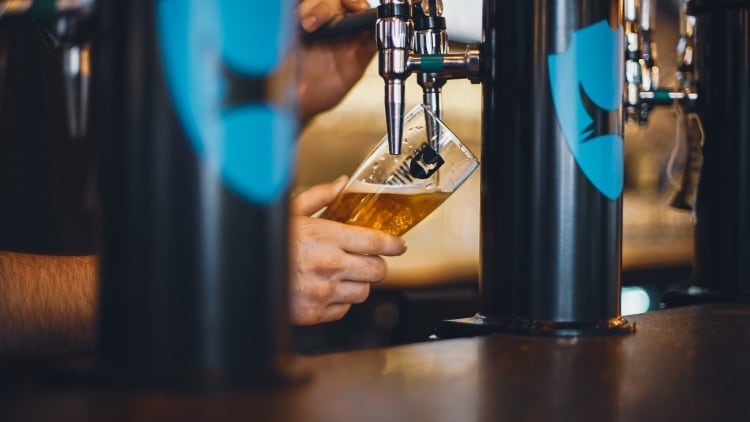Trade union Unite the Union claimed the business has been accused of ripping off waiting staff by making them pay up to 2% of the sales they serve out of their tips to give to the kitchen, bar and management.
The union also claimed the policy has led to waiting staff receiving no tips at all and even being in a tip deficit, where they owe money that has to be paid from tips made during shifts to clear the debt.
The union said some workers are losing out of hundreds of pounds a month in tips to subsidise the low wages of back of house workers.
One Unite member has also said they have been asked to stump up cash up front to cover the tip deficit, leaving them earning less than the minimum wage for their shift.
The policy, in which a percentage of total sales is used to determine how tips are shared between waiting and non-waiting staff rather than the total amount of tips, has been enacted in around a third of Miller & Carter’s restaurants.
Miller & Carter claims each restaurant’s staff voted to enact the policies, according to Unite.
However, the trade body claims to have been shown evidence from a number of restaurants that reveals staff were given limited options on which tipping system to use, with most restaurants only offering differing versions of a percentage of sales.
Unite general secretary Sharon Graham said: “Miller & Carter are ripping off the tips given to their low paid staff, leaving some workers owing money from future tips at the end of their shift.
“Miller & Carter are using this system to make low paid waiting staff compensate for the inadequate wages it pays to bar, kitchen and junior management workers. Unite will be fighting this policy all the way.”
Before the new tipping policies were introduced earlier this month, waiting staff would often pay a flat fee from their tips, the amount of which would be determined by the day and time of the shift, to be shared amongst back of house workers, according to Unite. In other restaurants, a percentage of the service charge collected would be shared.
Unite lead hospitality organiser Bryan Simpson said it was one of the worst tipping policies the Union had come across, because it forces low-paid workers to find tips that could never be guaranteed.
A spokesperson for Miller & Carter, said: “We are aware that third party organisations have been publicly critical and making inaccurate and potentially defamatory claims around our tipping practices.
“We are more than happy to be transparent about our approach which we believe is democratic, fair and ensures 100% of all tips given by guests are retained by frontline team members.
“Tips received by our team members are in addition to our core pay and benefits package which is always paid at, or above, national minimum wage.
“There has been no change to the approach that has been taken for years in that it is team members who democratically agree each year how tips should be distributed at Miller & Carter. To suggest otherwise is fundamentally untrue.”
There are currently 124 Miller & Carter venues across the UK. The spokesperson said each team, at each individual site, democratically decides on that team’s own tipping distribution policy. At this time, there are more than 70 variations across the estate as to how tips are distributed.
“No tipping policy in any venue should ever result in team members having to contribute from their own pocket,” they added.
The spokesperson said general Managers are not involved in the vote and/or final decisions and do not receive the benefits of tips. Every other member of staff is encouraged to participate in the process of how tips will be allocated amongst the team to ensure fairness for all.
They continued: “Team members have not, and will never be, asked to contribute towards tips from their own remuneration and contrary to some claims, team members never have their wages reduced in lieu of the tips they have received and will never be asked to make up any perceived shortfall in tips that are to be distributed to other team members.
“We are aware that in five out of our 124 restaurants this year the teams have not been able to agree the best tip sharing solution for their restaurant.
“We are currently trying to help the teams at these sites find a resolution that works for everyone and if we are made aware of any practices that don’t follow what has been agreed by the team, we will investigate further.”




